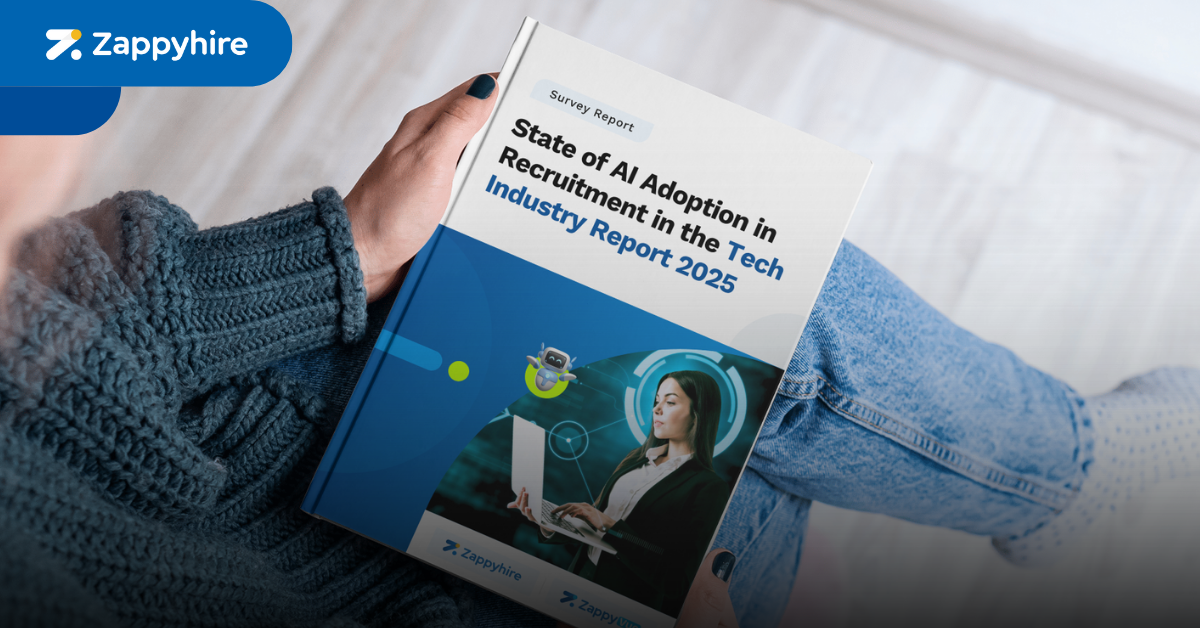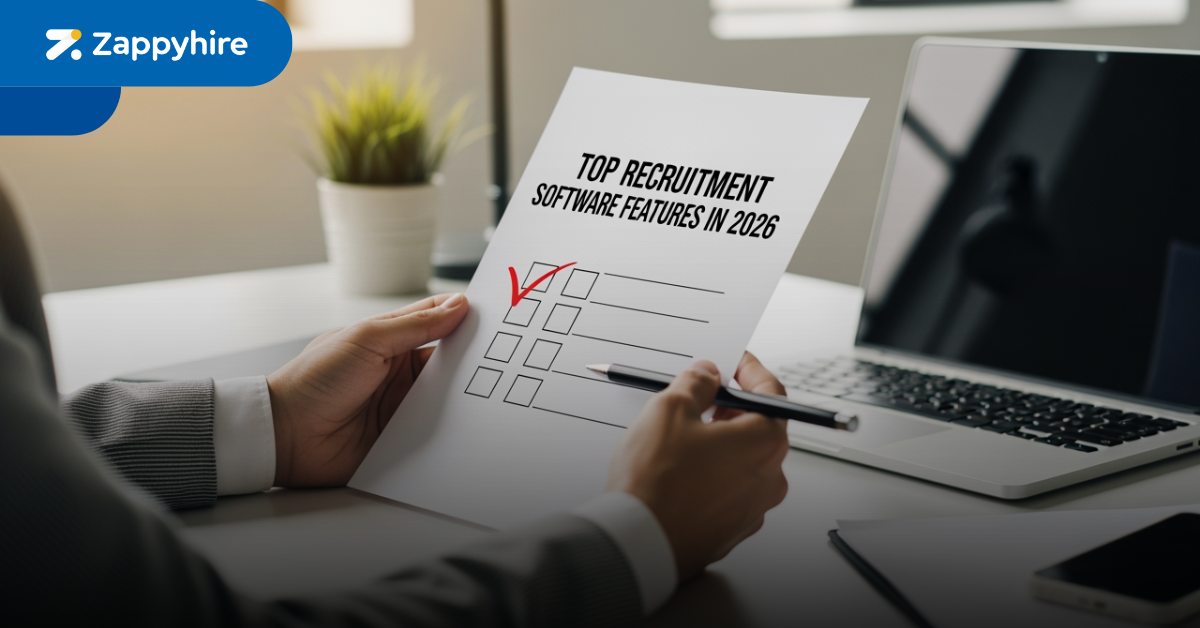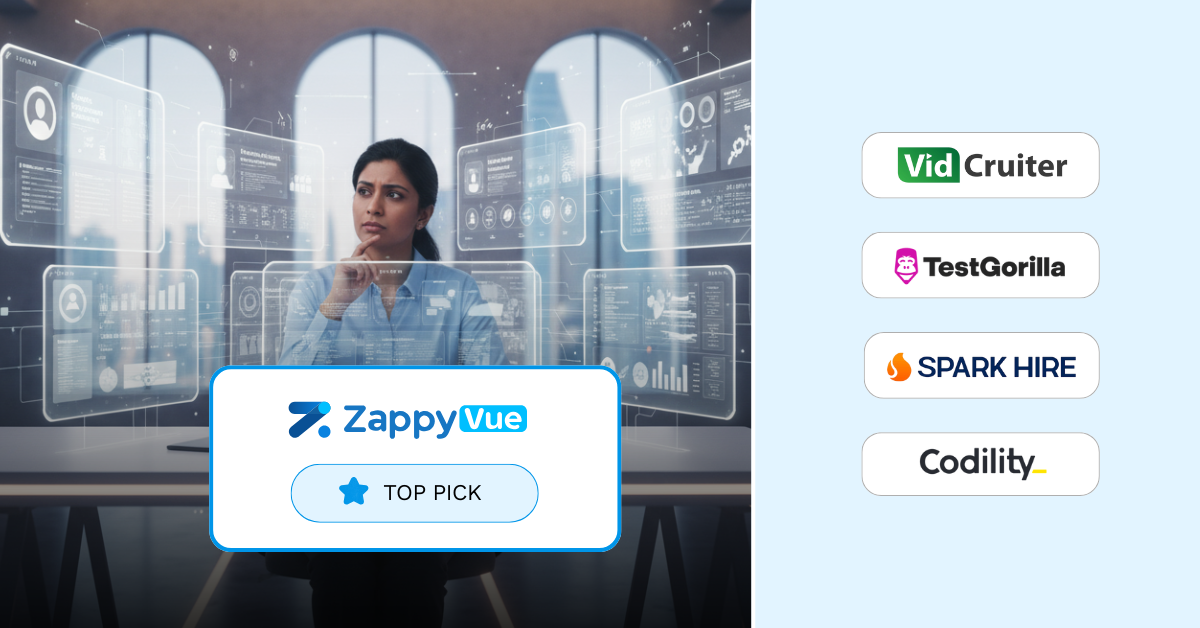
AI is changing the face of recruitment, offering smarter, faster, and more efficient ways to hire.
But how far has the tech industry – the hub of innovation – embraced this transformation?
To find out, we conducted a survey exploring the adoption of AI in recruitment for tech companies, its challenges, and its impact on hiring metrics.
We surveyed top CHROs, HR leaders, and recruitment decision-makers to gain deeper insights into the trends shaping the future of hiring.

While adoption of AI for recruitment is growing in the tech industry, scaling AI across industries brings its own hurdles, along with lessons and innovations that promise a brighter future for hiring.
AI in recruitment is becoming a standard
According to the State of AI Adoption in Recruitment in the Tech Industry report nearly 80% of surveyed companies in the tech industry are actively exploring or implementing AI-powered recruitment tools.
Interestingly, resistance to AI is minimal, with just 7.7% of companies deciding not to adopt it.
What does this mean? Companies are interested in AI but need the right tools, guidance, and systems to integrate it effectively.
AI’s role for early-career HR and seasoned leaders
The report pointed out an interesting factor – while early-career HR professionals lean on AI to bridge skills gaps and identify hidden talent, seasoned leaders focus on enhancing existing processes!
Early-career professionals (0–5 years) are more open to AI in recruitment, with 43% saying their company is somewhat likely to implement AI in the next year, while 28% of seasoned experts (10+ years) are not considering it unless they see a clear ROI.
AI-powered tools, like skill assessment platforms and predictive analytics, can help recruiters assess candidates’ transferable skills, adaptability, and learning potential (key factors for hiring in a dynamic industry like tech).
Early-career professionals see AI as a game-changer, with 46% believing it will become essential, while seasoned experts take a measured approach, seeing AI as an enhancer rather than a replacement (39%).

AI is helping companies easily find, assess, and connect with talent
AI is changing the way we hire, making the process faster, smarter, and more inclusive.
More than 80% of teams say they’ve seen a boost in efficiency, with many cutting down their time-to-hire.
Nearly 45% of companies have also saved money, showing that AI isn’t just a fancy tool – it’s a solid investment.
Even for those who didn’t see instant cost benefits, AI brought smoother processes and better overall results.
It’s also helping teams make smarter hiring decisions by matching candidates to jobs more accurately and evaluating soft skills.
The verdict – From handling large numbers of applications to building more diverse and inclusive teams, AI is solving real hiring problems in ways that matter.
What’s holding back some companies?
One of the biggest hurdles, cited by 28.2% of recruiters, is the struggle to ensure that AI tools integrate with existing systems.
Another concern is around bias, with 16.7% of professionals worried about ensuring that AI supports fair and inclusive hiring decisions.
While AI can help combat bias, it still requires thoughtful oversight to truly make a difference.
Many organizations are so entrenched in traditional processes that AI adoption hasn’t yet become a priority.
Some companies are eager to embrace AI, but what’s holding them back isn’t just resistance – it’s inertia.
Many struggle to fully leverage AI due to skill gaps, while others hesitate without clear proof of its value.
But these aren’t the only roadblocks. What else is keeping businesses from making the leap?
Why now is the time to embrace AI
AI is becoming indispensable in recruitment. With 64% of companies planning to adopt it within the next year, the momentum is undeniable.
Concerns about losing the “human touch” are gradually dissipating as organizations realize that AI enhances rather than replaces human interactions.
AI is tackling persistent pain points like high volumes of unqualified applicants, skill assessment challenges, and candidate drop-offs.
Embracing AI now means staying ahead in the talent race while delivering a better experience for candidates and recruiters alike.
To know more, download the free and complete report.






